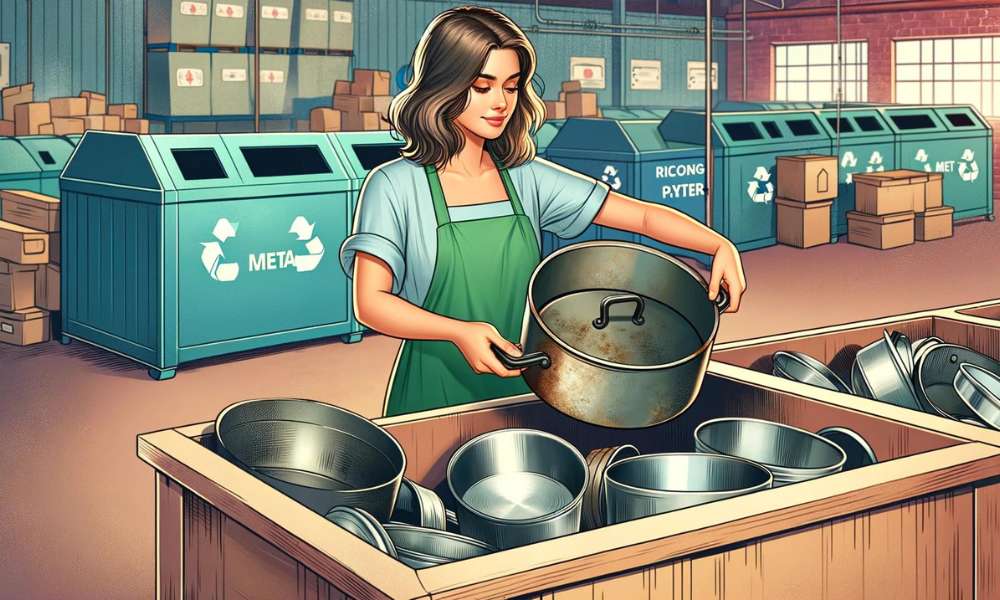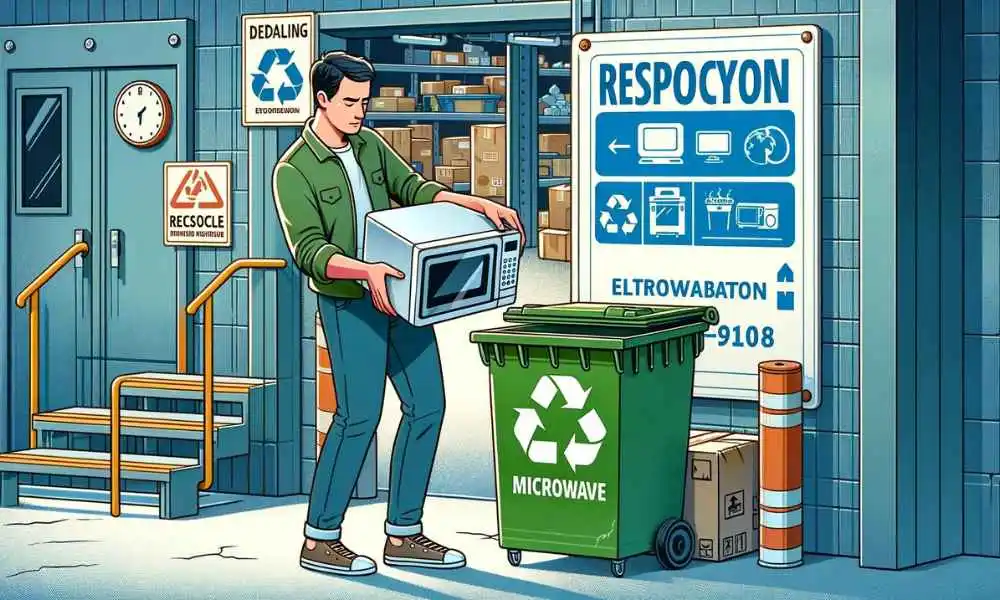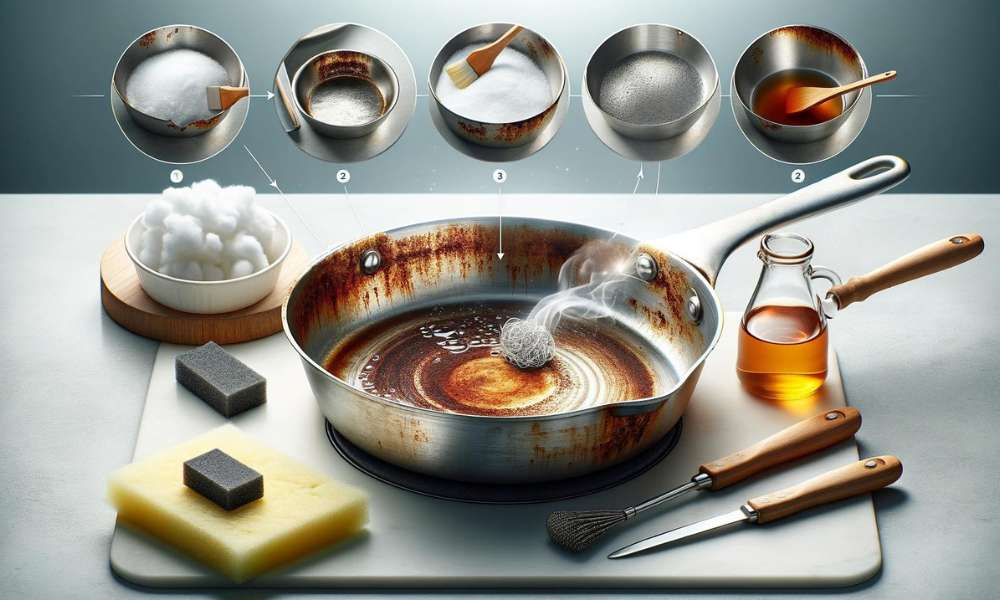Are you wondering what to do with those old pans in your kitchen? Whether they are scratched or rusted, it is important to dispose of them responsibly. In this post we will explore some simple and eco-friendly ways to say goodbye to your old cookware. We’ll discuss everything from recycling options to creative remodeling ideas. We’ll cover everything you need to clean out your kitchen and make room for a new kitchen. So let’s dive in and find the best solution for those how to dispose old pans.
Assessing the Condition of Your Pans
It is important to assess the condition of your old pans before deciding how to dispose of them. Whether they can still be used or need to be retired. Look for especially deep scratches that can trap food and bacteria. Rusty pans are another big problem as it can affect both the taste and safety of your food. If you have a non-stick pan, check to see if the coating has started to peel. Because it can cause you harm.
Also consider the performance of the pan. If the pan no longer heats evenly or the handles are loose or damaged. It can be difficult and unsafe to cook with. Using pans in such conditions can cause health risks. As they can release harmful substances or cook food incorrectly, affecting both your health and the quality of your food. Identifying these problems will help you decide if it’s time to recycle or just throw away.
Options for Reusing Old Pans
If your old pan is no longer useful for cooking don’t throw it away in a hurry. There are many creative ways to reuse them around your home or garden. A fun option is to convert them into planters. Especially one that has depth. You can plant flowers or herbs on it which will make your home more attractive. Drill a few holes in the bottom to drain the water and fill them with soil and plants. Another thing you can do is keep it as an organizer in your garage. Can be used to hold small items such as screws. It can be upcycled into unique pieces of home décor. such as a clock or wall hanging. Reusing your pans not only helps reduce waste but also adds a touch of personality and creativity to your space.
Recycling Old Pans
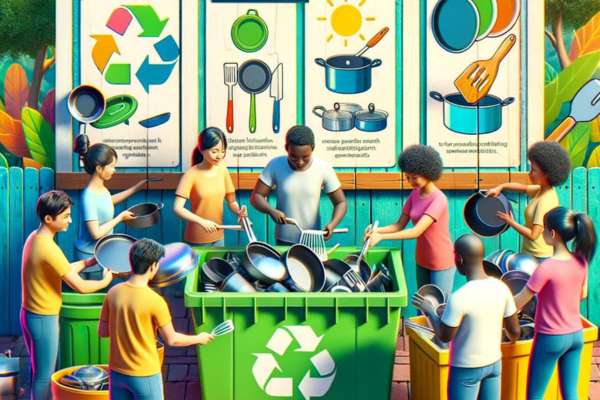
When it comes to disposing of old pans responsibly recycling is a great option. First identify what material your pan is made of as this will determine whether or not it is recyclable. Common materials such as aluminum stainless steel and cast iron are usually recyclable. Aluminum pan are in demand in recycling because of their ability to be completely reused. Stainless steel and cast iron are commonly accepted at recycling centers. Because they can be melted down and used in a variety of applications.
Next, you should familiarize yourself with your local recycling guidelines. Not all recycling centers accept the same materials, so it’s important to know what is accepted in your area. You can usually find this information by contacting your city or county’s waste management website directly.
Before you take your pans for recycling, prepare them properly. This usually involves cleaning them thoroughly to remove any food residue or grease. Additionally, remove any parts of the pan that are not made of metal. Such as wooden or plastic handles, as these materials can contaminate the recycling process.
By following these steps, you ensure that your old pan is the most efficient and eco-friendly possible. It helps in conserving resources and reducing waste.
Disposal of Non-Recyclable Pans
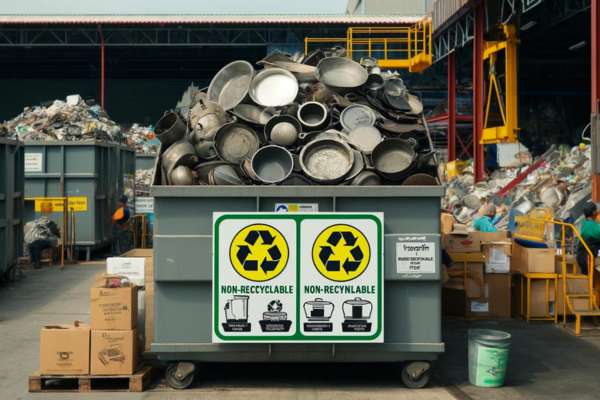
When you find old pans that cannot be recycled due to their material or condition. It is important to dispose of them responsibly. For general garbage dispose, make sure the pans are completely clean and free of any waste that might attract pests. It is very important to wrap them securely so that any sharp edges do not injure or damage the equipment.
Pans that contain hazardous materials such as certain types of non stick coatings that can release harmful chemicals. If not handled properly require special consideration. These pan should be treated as hazardous waste. Many municipalities have specific guidelines and facilities for safely disposing of such items. It is best to contact your local waste management authority. Find out the correct procedure and location for hazardous waste disposal. This step is important not only to protect the environment. But also to ensure the safety and health of your community. By following these guidelines you can ensure that your pawns are disposed of in the most responsible manner possible
Conclusion
Dispose of old pans doesn’t have to be a daunting task. By assessing their condition, you can decide whether to repurpose, recycle, or responsibly dispose of them. Remember, turning old pan into creative home or garden projects can breathe new life into them. While recycling them helps conserve valuable resources. For pans that cannot be salvaged, local guidelines should be followed. As you move forward, consider investing in sustainable. Long-lasting cookware and practicing regular maintenance to extend the life of your pans. Taking these steps not only tidies up your kitchen but also contributes to a healthier planet.

